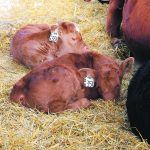Researchers at Lakeland College are examining the effectiveness of a supplement in calves and lambs to improve neonatal health and immunity. Depending on the results of the two-year trial, they could soon offer producers information on the best management practices to increase profitability, animal health and welfare by increasing neonatal health. “Hopefully long-term, we can […] Read more
Stories by William DeKay
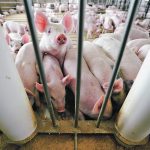
Indirect disease spread remains big risk
Much has been learned about managing the risk of spreading animal diseases such as African swine fever through feed, says an associate professor in the feed science program at Kansas State University. “There’s potential feed mill contamination of pathogens through people, trucks and ingredients,” Chad Paulk told participants at the recent Animal Nutrition Conference of […] Read more
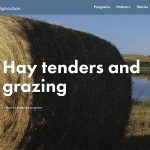
DUC invites producers to make hay
Trevor McLeod is planning to bid on 100 to 170 acres of the 2,200 acres of hay land that Ducks Unlimited Canada is making available to Manitoba farmers this year. Despite favourable moisture conditions this spring in the southwestern part of the province, the Brookdale area cow-calf producer will bale as much hay as he […] Read more
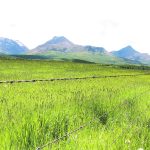
Universities launch soil carbon measurement project
Understanding the processes that producers use to manage pastures and then measuring the carbon storage critical
Scientists are digging deeper into how much carbon is stored in prairie soils. The University of Saskatchewan is co-leading a $3.2 million research project with the University of Alberta that is focused on carbon sequestration for climate change mitigation. The five-year project will study the amount of soil carbon in perennial forage systems across Saskatchewan […] Read more
Farm vandalism strikes Sask. seeding operation
Bullets and fenceline destruction hit farm hard at critical time near the end of seeding, in remote area
Bullet holes in tractor tires, a windshield and air seeder were beyond Grant Rourke’s imagination. He hadn’t experienced anything like it during 48 years of farming. It happened in early June. “It’s quite shocking. You hear these stories. You read about them in the papers and see them on TV, but you never think it’ll […] Read more
Farm has multigenerational history
SPY HILL, Sask. — History has been repeating itself at the Decorby farm for 140 years. Generations of Decorbys have tilled and planted the rich heavy loam soils that line the Qu’Appelle River Valley southeast of Spy Hill, Sask., not far from where Fort Esperance, a North West Company’s fur trading and pemmican depot used […] Read more
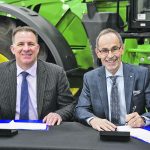
Regional applied colleges get smart with agreement on research
Olds College and Saskatchewan Polytechnic have signed a memorandum of understanding to collaborate in applied research activities at the Olds College Saskatchewan Smart Farm near Craik. “With the technical strength that Saskatchewan Polytechnic brings across a wide scope of areas and the intense focus at Olds College in agriculture and agriculture technology, it’s a really […] Read more
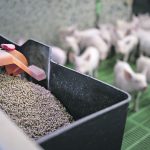
Heat recruited to kill viruses in feed
Researchers determine that a storage period of 30 days at 24 C reduces risk of viral contamination in plant-based feed
Multiple disease-causing viruses have been proven to survive for extended periods in imported plant-based animal feed, but what temperature can kill them? Researchers released data on the issue earlier this year. They want to develop science-based procedures to safely import essential ingredients from countries afflicted with animal viruses. “We wanted to determine at 30 days […] Read more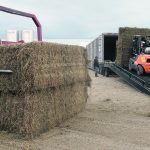
Mennonite Disaster Service wraps up Hay West
Program provided feed to Sask. cattle producers after last year’s drought significantly reduced supplies in the region
It was a moving experience for Luke Ferrari as a trailer load of high-quality large square hay bales pulled into his yard in early April. “It was overwhelming. We were just so happy to get it,” said the Livelong, Sask., rancher, who runs 150 cow-calf pairs and annually purchases about 200 yearlings. “I was really […] Read more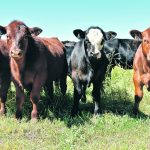
Climate neutral a goal for cattle sector
Former Agriculture Canada researcher calls net zero an unrealistic target to set for industry, including the livestock sector
Climate neutral, not net zero, should be the goal set in the ruminant livestock sector, says an expert in ruminant science. “There are very ambitious targets being set by industries. A lot of the wholesalers and retailers are all coming out every day saying they’re going to be net zero,” said Karen Beauchemin, honorary research […] Read more

